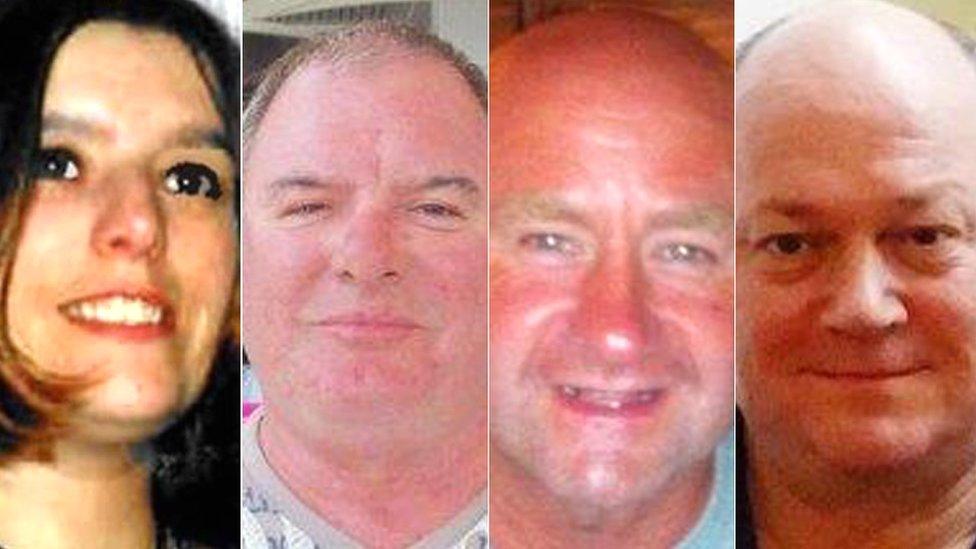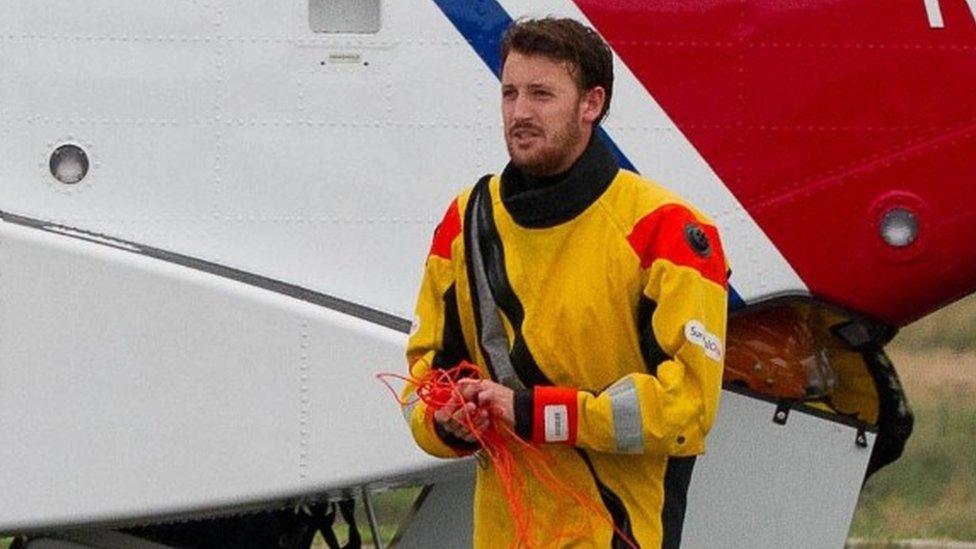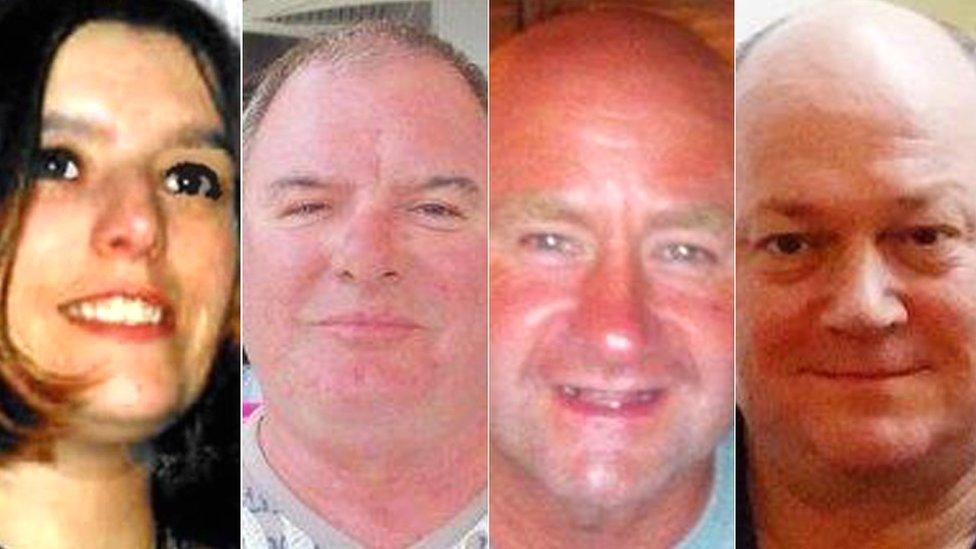Shetland Super Puma crash: Inquiry told realistic crash training risks injury
- Published

The Super Puma overturned in 2013 after hitting the water
An inquiry into the deaths of four people after a helicopter crashed into the sea has been told more realistic survival training could risk injury.
Super Puma passengers Sarah Darnley, 45, from Elgin, Gary McCrossan, 59, from Inverness, Duncan Munro, 46, from Bishop Auckland, and George Allison, 57, from Winchester, died in 2013.
Three of them drowned off Shetland.
An experienced pilot told the fatal accident inquiry that more realistic submersion training had dangers.
Sarah Darnley, Duncan Munro and George Allison drowned, and Gary McCrossan, who had cardiac disease, died from heart failure following the crash.
Stephen O'Collard, the chief technical pilot for helicopter firm CHC, told the seventh day of the FAI that crew and passenger pool survival training involved partial submersion, full upright submersion, and submersion with a slow rollover and also with a rapid rollover.
Derek Pyle, Sheriff Principal of Grampian, Highland and Islands, said waves were used in Norwegian training, as was actually being in a harbour.
He asked if realism needed to be looked at in the UK in light of the crash.
'Certain difficulties'
"I think there is a lot to be said for that", Mr O'Collard said, but added: "There are certain difficulties."
He said it can be done in the dark by turning lights out, but said you cannot drop a simulator into the water from too great a height.
"We do not want to be injuring people in training", he said.
Mr O'Collard said training in sea water was at the vagaries of the sea temperature, and also possible contamination in the water.
Sheriff Principal Pyle said injuring someone in the course of training would be "self-defeating".
The witness agreed: "It's not a very good idea to injure trainees".

Four people lost their lives in the 2013 crash
Sheriff Principal Pyle asked if there was any alternative means of transport for offshore workers other than helicopters.
Mr O'Collard said there were "walk to work" vessels that can be positioned next to platforms and are used in the southern North Sea.
However, he said the rougher conditions in the northern North Sea meant they were not really a "practical solution".
The inquiry has also heard that one survivor, Samuel Bull, who was believed to be 28, later took his own life after suffering post-traumatic stress disorder.
A total of 18 people were on board.
The inquiry, which was previously delayed due to coronavirus measures, continues.
- Published7 September 2020

- Published4 September 2020

- Published3 September 2020

- Published2 September 2020

- Published1 September 2020

- Published31 August 2020

- Published31 March 2020
